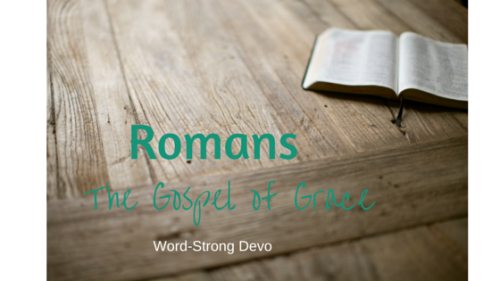 Therefore, God’s choice does not depend on a person’s desire or effort, but on God’s mercy.
Therefore, God’s choice does not depend on a person’s desire or effort, but on God’s mercy.
For example, Scripture says to Pharaoh, “I put you here for this reason: to demonstrate my power through you and to spread my name throughout the earth.” Therefore, if God wants to be kind to anyone, he will be. If he wants to make someone stubborn, he will.
You may ask me, “Why does God still find fault with anyone? Who can resist whatever God wants to do?” Who do you think you are to talk back to God like that? Can an object that was made say to its maker, “Why did you make me like this?” A potter has the right to do whatever he wants with his clay. He can make something for a special occasion or something for everyday use from the same lump of clay.
If God wants to demonstrate his anger and reveal his power, he can do it. But can’t he be extremely patient with people who are objects of his anger because they are headed for destruction? Can’t God also reveal the riches of his glory to people who are objects of his mercy and who he had already prepared for glory?
This is what God did for us whom he called—whether we are Jews or not. (Romans 9:16-24 (GW)
A lot of us struggle with the concept of God's sovereignty—His supreme rule over all—and whether or not people have choices in life. Are all things predetermined by God, or do people have a free will that they exercise? As with many things, yes and no.
If God is God—and He is—then our free will, our power of choice, has limitations. This is a good thing! If our freedom of choice was equal to God's power, then He wouldn't be omnipotent—all-powerful. So, there are limitations or boundaries to human free will, because of God's mercy.
We all need to know our boundaries, just as with raising and disciplining children. Once children know their boundaries, they experience both security and freedom. Will children test these boundaries? Oh yes, time and time again. We are the same way with God.
God is all-powerful and sovereign, and yet, He grants us great latitude to make choices. This is seen with the first humans on earth (Gen 2:15-17). Even though they made a poor choice, which brought suffering for all humanity, God had a plan of restoration embedded with the consequences of their poor choice (Gen 3:14-19).
This plan is called redemption and its goal is restoration. This is God's mercy in action, as seen on the cross where Jesus paid the price for humanity's rebellion. Christ's resurrection from the dead insures both our security and freedom, as we trust in Him by faith.
God is the Potter, we are the clay. Thankfully, He's a very patient and merciful Potter! ©Word-Strong_2016



